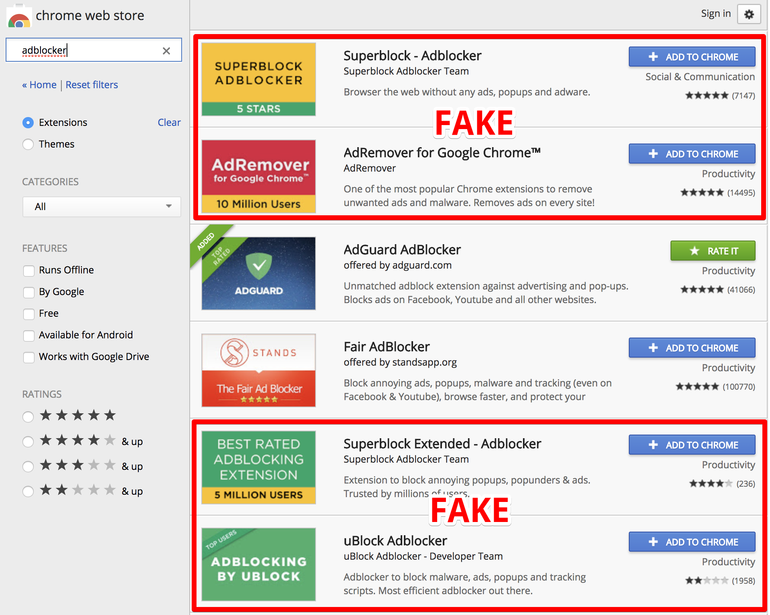An investigation has revealed that fake reviews for internet products are being bought and sold online. The investigation found companies using Facebook to offer Amazon customers full refunds in exchange for five-star reviews of their products. They are also able to buy bogus five-star recommendations on Trustpilot, one of the world’s leading and most trusted review websites, according to BBC 5 live Investigates. Such online review sites are becoming increasingly popular with businesses and customers. Some three quarters of British adults use them, of which half believe they have seen…
Read MoreAuthor: Dianne Jacobs
EU Investigating Apple’s Purchase of Shazam
The EU has launched an investigation into Apple’s acquisition of music identification service Shazam. It’s concerned that the deal could shrink consumer options for mobile music streaming services within the EEA (European Economic Area). In February, multiple countries, including Austria, France, Iceland, and Spain, requested that the European Commission assess the acquisition to determine whether it’s allowed under a European Union merger law. The deal, according to the commission, “may have a significant adverse effect on competition in the European Economic Area.” That request is now being acted on, with…
Read MoreSpotify Tests Explicit Song Blocker
Spotify, the UK’s biggest music streaming service, has started testing a way of filtering out songs which have explicit lyrics. The feature has been introduced on its iPhone and iPad apps – six years after being requested on its online forums. But some users have told BBC Radio 5 live: that the feature does not have enough controls. Rivals such as Apple Music already have password-protected parental controls to skip explicit tracks. Since 2011, streaming music providers have been expected to display the word “explicit” next to tracks that record…
Read MoreGoogle Confirms Its Services Are Casualties Of A Russian Blockage Due To The Recent Telegram Ban
A shower of paper airplanes were darted through the skies of Moscow and other towns in Russia as users answered the call of entrepreneur Pavel Durov to send the blank missives out of their windows at a pre-appointed time in support of Telegram, a messaging app he founded that was blocked last week by Russian regulator Roskomnadzor (RKN) that uses a paper airplane icon. RKN believes the service is violating national laws by failing to provide it with encryption keys to access messages on the service (Telegram has refused to comply).…
Read MoreWikipedia Adds Page Reviews for Easier Surfing
Wikipedia added a useful new feature earlier this week: page previews. The Wikimedia foundation says that it’s “one of the largest changes to desktop Wikipedia made in recent years,” and provides readers with a popup window that provides a bit of additional context for the article behind the link. Reading through any Wikipedia page can turn into a rabbit hole that can take you to places you never expected. That exploration can be a fun, informative adventure, but it can also be a distraction, especially if the article you click…
Read MoreGoogle’s New Chat Messaging Service is Ready to Launch
Google has started the global roll-out of its new Chat messaging service, which is designed to replace SMS text messages on Android phones. Chat has features such as group texts, videos, typing indicators and read receipts, which are not available when sending SMS texts. Chat will be integrated with the default messages app on Android phones. However, it will be up to mobile operators to enable the service and it does not offer encrypted messages. The new system has been in development for several years, but is now beginning to…
Read MoreGoogle Gets Rid of Fake Chrome Ad Blockers
Research unearths five malicious ad-blocker extensions on the Chrome Web Store that were installed by 20 million Chrome users before Google removed them. The bogus ad blockers were discovered by researchers at AdGuard, a Moscow-based maker of ad-blocking and anti-tracking tech. Following AdGuard’s report on the fake ad blockers in the Chrome Web Store, Google removed the suspect extensions, which have been installed on 20 million Chrome instances over the past year. The most popular fake ad blocker was AdRemover for Google Chrome, which had over 10 million users, putting…
Read MoreFacebook calls out Google, Amazon and Twitter for also harvesting user data
Facebook wants users to know that it’s not the only one tracking their every move on the internet. The social media giant pointed a finger at Google, Amazon, Twitter and other platforms for using many of the same data collection practices that some privacy advocates are referring to as invasive. In a blog post published Monday, the firm described in depth all the ways it gathers information on you around the web — even if you’re not a Facebook member or are logged out of your account. Facebook has been…
Read MoreFacebook seeks facial recognition consent in EU and Canada
Facebook has started asking European and Canadian users to let it use facial recognition technology to identify them in photos and videos. Facebook originally began face-matching users outside Canada in 2011, but stopped doing so for EU citizens the following year after protests from regulators and privacy campaigners. The new request is one of several opt-in permissions being rolled out in advance of a new data privacy law. The move is likely to be controversial. The company is currently embroiled in a privacy scandal related to the use of its…
Read MoreGmail.com redesign includes self-destructing emails
Gmail.com is soon getting its first redesign in seven years, and with that new look comes some new features. There has been new side panels for Google Calendar, Google Keep, and Google Tasks, and now we’re getting word of another new feature: self-destructing emails. TechCrunch has screenshots detailing the feature from the pre-release version of Gmail. In the compose window, there’s a new lock icon called “Confidential Mode.” When clicked, a message pops up saying, “Options to forward, download or copy this email’s contents and attachments will be disabled.” The…
Read More








